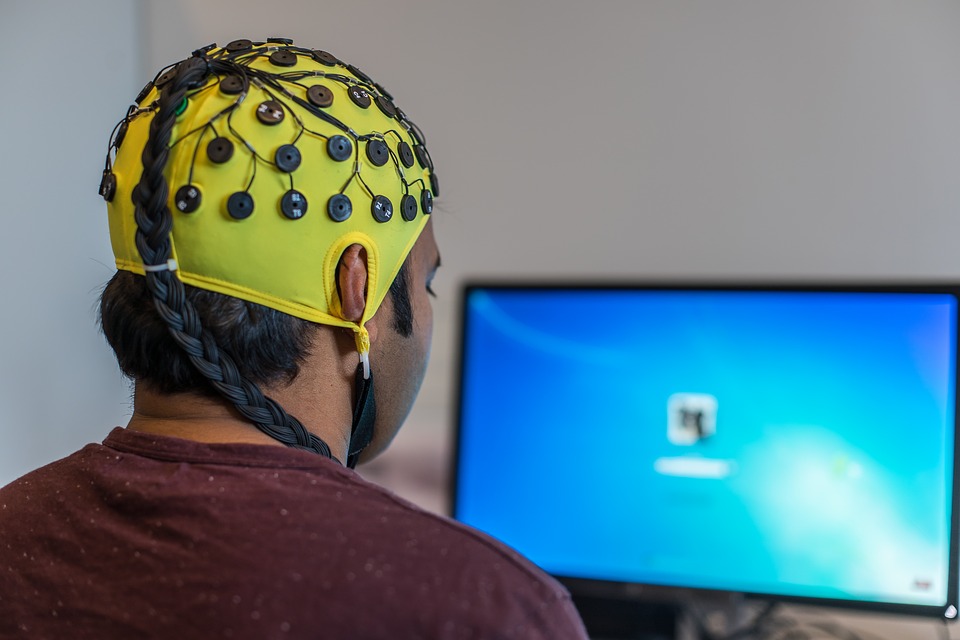Communication Professor Crosses Disciplines with Publication on Cognition
In a surprising turn of events, SLU-Madrid’s communication program director, Dr. Brian M. Goss published a scholarly paper on the topic of electroencephalograms (EEG) and cognition.
Though Goss specializes in mass media and critical analyses of texts (news, films, new media), back in the late 1980s and early 1990s, his initial experiences as a teacher and researcher were as a graduate student in the Department of Psychology at the University of Illinois at Urbana. In this light, it may be less surprising that he was the second author on the paper, “The Error Related Negativity” in Perspectives on Psychological Science.
Goss explains: “What happened was that this paper from 1993 on which my colleague Bill Gehring was lead author had demonstrated some new findings about the EEG signature that occurs when people make errors on simple cognitive tasks. This data was also incorporated into my master’s thesis in psychology at Illinois. Anyway, the 1993 paper was seminal and influential in such a way that another journal approached Bill seeking a 25-years-after retrospective on the original paper, concerning what happened next.
I was chuffed to hear from Bill, who is now pursuing a very successful career at the University of Michigan, and help him even in a small way with the manuscript. I must emphasize that this is Bill’s project, but it was fun to revisit my earlier training and work as an academic.”
He adds, “To this day, I try very hard in my Communication Research course to emphasize the bedrock importance of understanding scientific methodologies — even if scientific methods are not as widely used in communication. It’s part of being an educated person, a concomitant of being widely learned. This newest paper on EEG will look funny on my CV given that my other recent publications have been on political harassment campaigns and tourist pamphlets from Extremadura, Spain — but, yes, it’s for real!”
The whole sequence of events unequivocally captures the unswerving commitment of the Department of Communication, as well as the Madrid Campus as a whole, to cross-disciplinary activity that is at once broad and deep.
